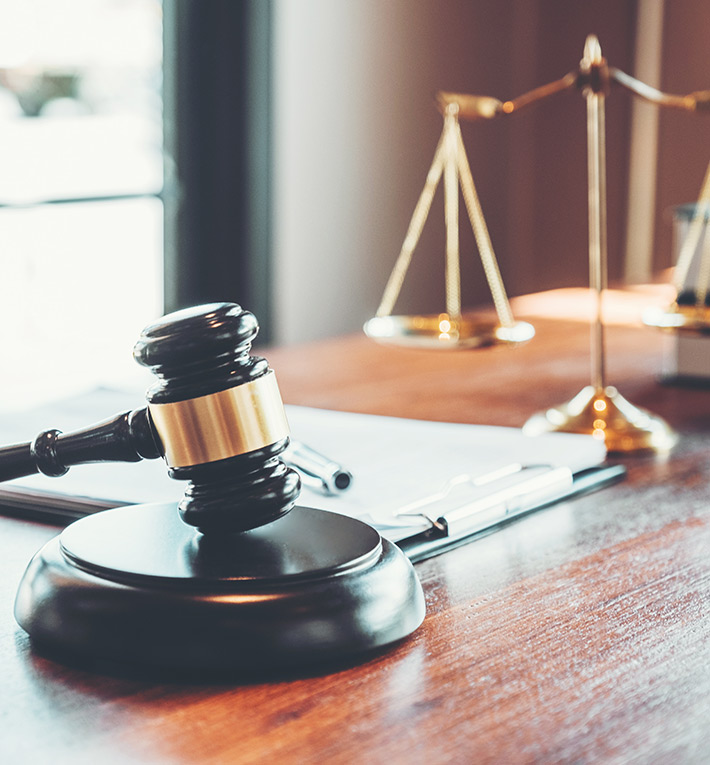
Our Florida malpractice law firm has been advocating for clients since 1967. We know how to fight back against the people who take advantage of those who were simply seeking help in the first place.
If you injured or damaged by the negligence of a professional, the last thing you need to deal with is complex paperwork and the court system. Our malpractice lawyers at Wagner, McLaughlin & Whittemore know what you’re facing. We can handle the legal issues for you while you focus on moving forward with life.
We represent people and businesses that have been the victim of a wide variety of professional malpractice. You should not bear the financial burden of someone else’s wrongdoing. Let an experienced Florida malpractice lawyer at Wagner, McLaughlin & Whittemore make this situation easier for you.
Our home office is located in Tampa, but we serve clients throughout Florida, including, but not limited to the following cities:
The Florida malpractice lawyers at Wagner, McLaughlin & Whittemore handle an array of professional negligence claims, including, but not limited to:
Malpractice is negligence by a professional. Negligence is the failure to use reasonable care. Reasonable care on the part of a professional is the care that a reasonably careful professional would use under like circumstances. Negligence is doing something that a reasonably careful professional would not do under like circumstances or failing to do something that a reasonably careful professional would do under like circumstances. It is the failure to meet the professional standard of care owed to the client under the circumstances. This can happen in a variety of professions, but some of the most common examples include:
Legal malpractice occurs when a lawyer fails to act with the skill and care expected of a lawyer under similar circumstances, and this failure harms the client. Lawyers are consulted and hired in a wide variety of cases and to advise their clients in all manner of legal problems. On occasion, they do so negligently. Examples of legal malpractice include failing to file a lawsuit in time, missing deadlines in cases or failing to abide by court orders, drafting a contract poorly, providing negligent advice, failing to investigate a case properly, failing to protect a client’s homestead, and countless other ways.
Medical malpractice occurs when a healthcare professional, such as a doctor, nurse, or dentist, provides negligent care that causes injury or death to a patient. Examples of medical malpractice can include misdiagnosis, medication errors, surgical errors, delayed diagnosis, and failure to obtain informed consent.
The Florida Legislature has made it difficult and expensive to sue negligent healthcare professionals. To do so, you must obtain a sworn affidavit from a medical expert that has reviewed the relevant records attest that there has been negligent care and that the negligence has harmed the patient. Once you have an affidavit of negligence, you must go through a 90-day presuit period in which the parties may be required to answer questions, provide unsworn statements and produce records.
The medical malpractice process is complicated, even for lawyers. At Wagner, McLaughlin & Whittemore, we have handled medical negligence claims for decades and are well-suited to guide a malpractice victim through the legal process to obtain fair compensation for the injuries suffered.
Accounting malpractice occurs when an accountant fails to follow professional standards, which results in harm to the client. Examples of accounting malpractice can include preparing inaccurate financial statements, failing to detect fraud, improper of missing tax returns, or improperly advising the client on tax matters.
Insurance malpractice, also known as insurance bad faith, occurs when an insurance company acts unfairly or dishonestly in handling a policyholder’s claim. This can manifest in various ways, including denying a valid claim, delaying payments, or making lowball settlement offers, but the core concept is that the insurer breaches its duty of good faith and fair dealing towards the policyholder.
Bad faith on the part of an insurance company is failing to settle a claim when, under all the circumstances, it could and should have done so, had it acted fairly and honestly toward its insured and with due regard for his or her interests. Like other malpractice claims, you want to be represented by lawyers that are familiar with the complexities of the law and who have litigated in the area before. We have done precisely that at Wagner, McLaughlin & Whittemore.
Florida’s malpractice claims process can be complex and involves several steps. You must prove that the professional was negligent or acted wrongfully and you have damages due to their negligence. Since you are going up against a professional in Florida, it’s essential that you have a Florida malpractice lawyer on your side.

You must be able to show that the legal, medical, accounting, or other professional who damaged you was negligent and that their negligence caused your damage or injury. Negligence indicates that they did not act as a reasonable professional would in a similar situation.
The professional is held to the standard that other similar professionals are held. Thus, an attorney’s actions are compared to what a reasonable attorney would do, and an accountant is compared to a reasonable accountant.
Financial liability is determined by establishing the following elements:
The professional’s breach of the duty of care caused you to suffer damage
You may wonder how much your case is worth. In a malpractice case, you can get compensation for your economic and non-economic damages. In malpractice cases, you may be able to get all the damages that you would have gotten in your original case if it was a personal injury claim or other damages related to your case.
Economic damages are those that are directly connected to out-of-pocket expenses. They include losses such as lost wages, property damage, medical expenses, and more.
Non-economic damages are not represented by monetary loss. Instead, they are intangible losses like pain and suffering, mental anguish, disability or physical impairment, and the loss of the enjoyment of life. All evidence is considered when measuring non-economic damages.

Being the victim of a professional negligence in Florida can cause significant impact to your finances and your ability to lead your life. However, it doesn’t have to ruin your life. Wagner, McLaughlin & Whittemore can help you understand the laws that apply to your case and collaborate with you to develop a dynamic solution that will get you the best outcome possible in your case. That may mean accepting a maximum settlement offer or taking your case to trial. We offer services throughout Florida.
We're Available — Call Today